Contributor(s): Shared on: 13 May 2023 under the Creative Commons Zero (CC 0) Universal license a Public Domain dedication Categories: Tags: | Contribute a translation | Source (English) |
|---|
|
Prayer for submission to the divine will. | |
Oh, Thou who canst look into the inmost soul of Thy people;
Thou who knowest their secret thoughts,
though hidden from all mortal eye;
Thou to whom their every feeling is open as the day,
though to themselves all is darkness;
oh, merciful and gracious God,
if it be acceptable in Thy presence,
oh, grant the wish
that is now uppermost in my heart.
I know not what is for my good.
I know not for what I pray,
but, to my darkened eye,
that wish seems as if
it tended but to my happiness;
but, if it be not granted,
teach me, oh my God,
submission to Thy divine will. | |
Oh, give me a lowly and an humble spirit,
that I may feel all that Thou doest is right,
and all that the Almighty wills is for the best.
Though at the time my soul may sink
beneath disappointment,
yet, oh merciful God,
let me still retain that even temper
which is most acceptable to Thee.
Teach me, my Heavenly Father,
the right government of my easily excited feelings,
that I may meet sorrow and disappointment
with an humbled and a chastened,
yet not a failing or a murmuring
spirit. | |
Thou, oh God,
knowest my heart,
and Thou wilt not give me trials
disproportioned to my strength. | |
From Thy powerful hand
all the happiness of this life cometh,
and from Thy dread hand
cometh sorrows. | |
Give me then, oh most merciful Father,
a chastened and an humble spirit,
that whatever may be Thy just decree,
though it may not please Thee
to grant my wish,
I may bow in submission
to Thy divine will,
and say, with a rebuked and lowly heart,
Thy gracious will be done! | |
Hear me, oh merciful God,
and, for the sake of Thy great and holy name,
oh, answer me. —
Amen. |
“Prayer for submission to the divine Will” by Grace Aguilar was published posthumously by her mother Sarah Aguilar in Essays and Miscellanies (1853), in the section “Sacred Communings,” pp. 176-177. In the UK edition of Sacred Communings (1853) the prayer appears on pages 70-71. Source(s)
 Grace Aguilar (2 June 1816 – 16 September 1847) was an English novelist, poet and writer on Jewish history and religion. Although she had been writing since childhood, much of her work was published posthumously. Among those are her best known works, the novels Home Influence and A Mother's Recompense. Aguilar was the eldest child of Sephardic Jewish refugees from Portugal who settled in the London Borough of Hackney. An early illness resulted in her being educated by her parents, especially her mother, who taught her the tenets of Judaism. Later, her father taught the history of Spanish and Portuguese Jews during his own bout with tuberculosis which had led the family to move to the English coast. After surviving the measles at the age of 19, she began to embark on a serious writing career, even though her physical health never completely recovered. Aguilar's debut was an anonymous collection of poems, The Magic Wreath of Hidden Flowers. Three years later she translated Isaac Orobio de Castro's Israel Defended into English at her father's behest. Later her The Spirit of Judaism drew interest and sales in both Britain and the United States after being published in Philadelphia by Isaac Leeser. He added a preface to the work elucidating his differences with her, the first of many clashes her work would have with mainstream Jewish thought. In the 1840s her novels began to attract regular readers, and Aguilar moved back to London with her parents. Despite her success, she and her mother still had to operate a boys' Hebrew school to stay solvent, which she resented for the time and energy it took from her writing. In 1847, she became ill again with a spinal paralysis which she did not let prevent her from visiting her brother in Frankfurt. Her health worsened and she died there that September. Aharon Varady (M.A.J.Ed./JTSA Davidson) is a volunteer transcriber for the Open Siddur Project. If you find any mistakes in his transcriptions, please let him know. Shgiyot mi yavin; Ministarot naqeni שְׁגִיאוֹת מִי־יָבִין; מִנִּסְתָּרוֹת נַקֵּנִי "Who can know all one's flaws? From hidden errors, correct me" (Psalms 19:13). If you'd like to directly support his work, please consider donating via his Patreon account. (Varady also translates prayers and contributes his own original work besides serving as the primary shammes of the Open Siddur Project and its website, opensiddur.org.) Read a comment / Leave a comment (moderated) Works of related interest: |



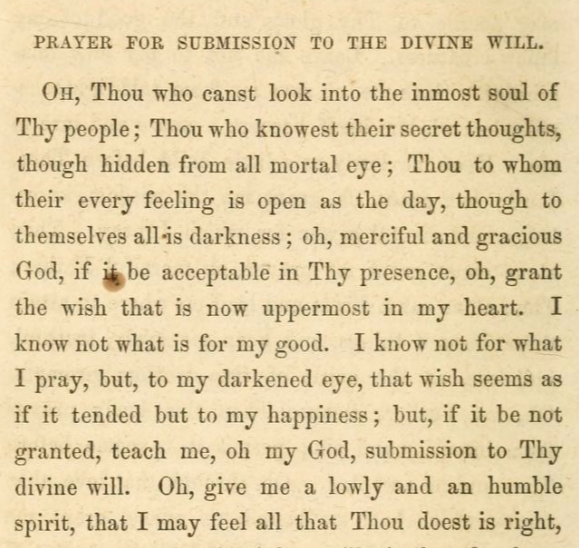

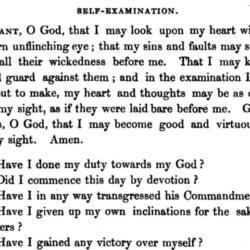

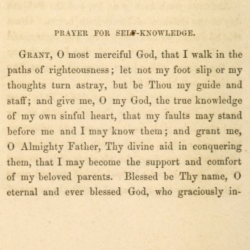
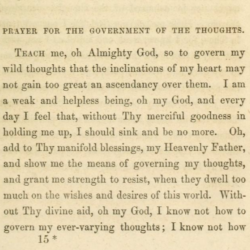
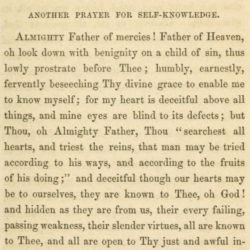



Leave a Reply